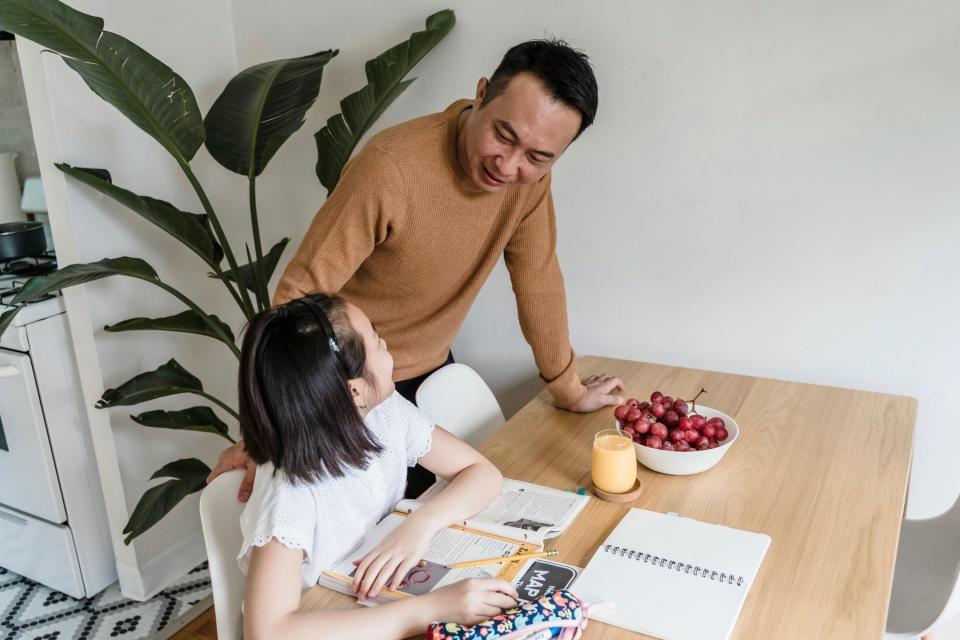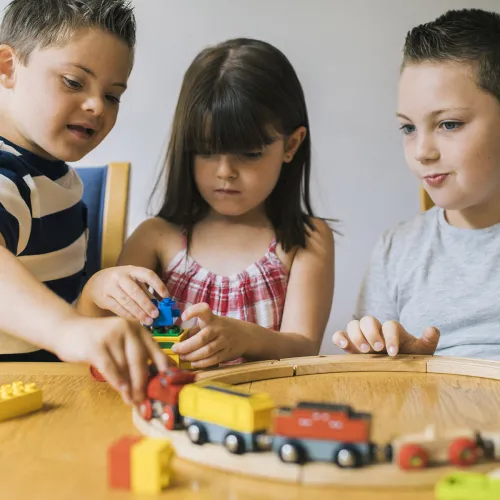Divorce and Your Child's Education: 3 Tips to Help Avoid Academic Setbacks
 In an ideal world, the stress of divorce or separation would have no impact on a child's education or their enjoyment of school. In reality, ensuring that your child's school life suffers minimally from your separation will require substantial work and preparation from both you and your co-parent. Luckily, the motivation for putting in this hard work is the long-term benefit of having a child who thrives in a learning environment, ensuring they'll have a framework for success well into the future.
In an ideal world, the stress of divorce or separation would have no impact on a child's education or their enjoyment of school. In reality, ensuring that your child's school life suffers minimally from your separation will require substantial work and preparation from both you and your co-parent. Luckily, the motivation for putting in this hard work is the long-term benefit of having a child who thrives in a learning environment, ensuring they'll have a framework for success well into the future.
The work needed to stabilize a child's education should be done swiftly and with close attention to detail. Use these three tips when anticipating the long and short-term effects of divorce on your child's education.
Education Communication
Chaos and uncertainty do not foster academic rigour. No matter the age of your child, if their school life is unstable, they may come to view learning as a source of anxiety and concern. One way you and your co-parent can prevent academic instability is to develop a plan for keeping each other informed of all school situations and updates. Many of these preparations can be completed as your family gears up to go back to school in the fall, but even the best-laid plans still need maintenance in order to succeed.
- Make sure your children's teachers know that both of you need to be contacted when they have relevant information to share. If a teacher or school official mistakenly contacts only one of you, do your best to inform your co-parent of the update.
- Try sharing information about grades and projects with each other through a shared file system. You may even want to discuss scanning homework and uploading it to the shared space. This can prevent last-minute scrambles to locate missing assignments across two separate households.
- Have a plan in place concerning field trips, chaperoning, and extracurricular events. Will you and your co-parent trade off school duties with each other? Consult the school's calendar and speak to teachers to get an idea of what the academic year has in store for these types of events.
Your Child's Teacher
As an adult, you probably still remember the names of your favourite teachers. Teachers and guidance counsellors can have a massive impact on children, who will carry the lessons learned from them well into adulthood. As an important figure in their day-to-day life, teachers will play a critical role in navigating divorce and your child's education. However, it's vital that they remain a resource for your child. They should never get caught up in any co-parenting conflict.
- This point can’t be stressed enough: make sure that your child's teacher knows they'll have to contact both of you if there are any updates about your child. If stepparents or extended family members also help with your child's schooling, consider submitting a formal request to grant permission for them be contacted when necessary as well.
- Never put the teacher in the middle of any co-parenting upsets. Do not use them as a means of venting about the other parent. School officials and teachers are not there to listen to frustrations about separation or divorce.
- Meet your child's counsellor. Let them know if your child has been struggling with the divorce or separation. Having a neutral third party as a resource can be a great source of support and comfort for children.
Your Child's Academic Interests
The time after a divorce can be inordinately busy, especially when parenting plans and coordinative efforts are new and unpracticed. As such, it's all too easy to let extracurricular activities—or any pursuits that require extra time, attention, or funds—to fall by the wayside. However, your child's education and happiness depend partially on them having and enjoying pursuits that can take their focus away from daily stressors.
- If a previous activity is too expensive to fund after the divorce, try to find a new activity at a reduced or free rate for your child to attend. Check with local park and recreation boards, after-school programs, and other community organizations for programs directed specifically at children.
- Extracurricular activities can require greater coordination between co-parents as they necessitate an increased number of pick-up/drop-off times and the coordination of reimbursements. With your child in mind, do your best to make a team effort when it comes to your child’s activities and educational pursuits. It can help to have a shared calendar to track pick-up and drop-off responsibilities as well as a shared expense register to split program fees and equipment purchases.
- Show support for your child's extracurricular and academic endeavours. Whether it's a basketball game, debate meet, or the spring play, having both parents attend and enthusiastically support their efforts can do wonders for a child's self-esteem and confidence in their family situation. If you can, try to attend as many of your child's events as possible, regardless if your co-parent will be able to do so as well.
No parent wants to watch their divorce and their child's education mix negatively. With hard work and planning, your child's academics can still flourish after a separation. Using the strategies outlined above as a guide, discuss any goals you have for your child's education with your co-parent. Make sure to stay on the same page, openly communicate with all of your children's teachers and counsellors, and continue to support them in their academic endeavours rigorously. Your efforts at maintaining the excellence of your child's education will have benefits that last them a lifetime.

Education Communication
Chaos and uncertainty do not foster academic rigor. No matter the age of your child, if their school life is unstable, they may come to view learning as a source of anxiety and concern. One way you and your co-parent can prevent academic instability is to develop a plan for keeping each other informed of all school situations and updates. Many of these preparations can be completed as your family gears up to go back to school in the fall, but even the best-laid plans still need maintenance in order to succeed.
- Make sure your children's teachers know that both of you need to be contacted when they have relevant information to share. If a teacher or school official mistakenly contacts only one of you, do your best to inform your co-parent of the update.
- Try sharing information about grades and projects with each other through a shared file system. You may even want to discuss scanning homework and uploading it to the shared space. This can prevent last-minute scrambles to locate missing assignments across two separate households.
- Have a plan in place concerning field trips, chaperoning, and extracurricular events. Will you and your co-parent trade off school duties with each other? Consult the school's calendar and speak to teachers to get an idea of what the academic year has in store for these types of events.
Your Child's Teacher
As an adult, you probably still remember the names of your favorite teachers. Teachers and guidance counselors can have a massive impact on children, who will carry the lessons learned from them well into adulthood. As an important figure in their day-to-day life, teachers will play a critical role in navigating divorce and your child's education. However, it's vital that they remain a resource for your child. They should never get caught up in any co-parenting conflict.
- This point can’t be stressed enough: make sure that your child's teacher knows they'll have to contact both of you if there are any updates about your child. If stepparents or extended family members also help with your child's schooling, consider submitting a formal request to grant permission for them be contacted when necessary as well.
- Never put the teacher in the middle of any co-parenting upsets. Do not use them as a means of venting about the other parent. School officials and teachers are not there to listen to frustrations about separation or divorce.
- Meet your child's counselor. Let them know if your child has been struggling with the divorce or separation. Having a neutral third party as a resource can be a great source of support and comfort for children.
Your Child's Academic Interests
The time after a divorce can be inordinately busy, especially when parenting plans and coordinative efforts are new and unpracticed. As such, it's all too easy to let extracurricular activities—or any pursuits that require extra time, attention, or funds—to fall by the wayside. However, your child's education and happiness depend partially on them having and enjoying pursuits that can take their focus away from daily stressors.
- If a previous activity is too expensive to fund after the divorce, try to find a new activity at a reduced or free rate for your child to attend. Check with local park and recreation boards, after-school programs, and other community organizations for programs directed specifically at children.
- Extracurricular activities can require greater coordination between co-parents as they necessitate an increased number of pick-up/drop-off times and the coordination of reimbursements. With your child in mind, do your best to make a team effort when it comes to your child’s activities and educational pursuits. It can help to have a shared calendar to track pick-up and drop-off responsibilities as well as a shared expense register to split program fees and equipment purchases.
- Show support for your child's extracurricular and academic endeavors. Whether it's a basketball game, debate meet, or the spring play, having both parents attend and enthusiastically support their efforts can do wonders for a child's self-esteem and confidence in their family situation. If you can, try to attend as many of your child's events as possible, regardless if your co-parent will be able to do so as well.
No parent wants to watch their divorce and their child's education mix negatively. With hard work and planning, your child's academics can still flourish after a separation. Using the strategies outlined above as a guide, discuss any goals you have for your child's education with your co-parent. Make sure to stay on the same page, openly communicate with all of your children's teachers and counselors, and continue to support them in their academic endeavors rigorously. Your efforts at maintaining the excellence of your child's education will have benefits that last them a lifetime.



